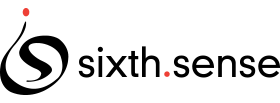
Tell me a story
We’ve been telling stories to each other pretty much since the birth of language. Art, philosophy and religion are replete with tales about human behaviour and interactions.
But we don’t just tell stories to each other, we also tell them to ourselves e.g. ‘I’m not good enough,’ ‘I must be perfect,’ ‘doing nothing is pointless,’ ‘I am always left out,’ or ‘I’m not very bright’.
Fundamental to how we are as people is the content of our personal narrative. This the lens that we use to help interpret and make sense of the world, the foundation of our relationships with other people and a principal determinant of our behaviour.
So, where does our narrative come from?
On the whole, the stories that well tell ourselves come from other people – the big people in our lives when we were little: parents, teachers, siblings and authority figures. The state of being small is a state of dependence: we learn how we need to behave to get our needs met (e.g. ‘finish your main course before your dessert’ or ‘complete your work and then you can play’) – from basic survival to the feeding of our psychological hungers for safety, affection and connection. As we mature, we form ideas about conditional acceptance and what we need to do to be seen as simply OK. These ideas are then reinforced by culture, norms, laws and even the performance management systems of the organisations we work for!
Is there a problem with this? Not necessarily, but there can be. Provided that the stories that we tell ourselves are positive and self-affirming and that our internal narrative leads to growth, performance and fulfilment, then everything is OK.
But sometimes the narrative isn’t so constructive. Sometimes we start from a place of profound self-criticism and the only way that we can possibly feel better is think and act in ways that we think will win the acceptance of others, but which do us lasting damage. It’s then that we lose one thing that we all need at the moment – the capacity to flex and adapt; our beliefs become our chains and our freedoms to act are eclipsed by unhealthy drivers and compulsions. We risk derailing.
It’s our view that two huge building blocks of healthy high performance are self-knowledge and self-acceptance and that one of the ways to achieve both is to critically listen to those personal stories, to ask where they came from, whether they are helpful and whether it’s time to let get of them and adopt some new ones.
How you can do this will vary – keeping a journal, learning to meditate, having a development assessment or being coached: they all have their role to play. Talk to us if you’d like to know more. In the meantime, have a look at the here at material that we have put on sane.works or browse our flagship book – Staying Sane in Business.
We also have a range of courses that can help with this… click HERE for more information

Start The Discussion